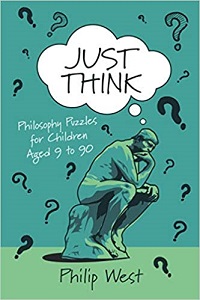How will these resources help you?
Teenagers may perceive philosophy as something that is not relevant to them. The stereotypical image of a philosopher as a privileged, long-dead man is no match for the latest social media influencer. While the idea of philosophy as an ancient academic discipline can in itself attract some teenagers who want to go against the grain, what about the others? How do we get them interested? These resources aim to help teachers develop classroom-based activities to inspire and engage even the fastest-paced attention spans towards philosophical thinking and the art of slowing down.
Learning Buddhism from a cat

The Dalai Lama’s Cat
by David Michie, published by Hay House UK, (2012), 9781781800560
This book is a superb read for anyone who wants to learn about Buddhism and Buddhist philosophy. It is written from the perspective of a cat that the Dalai Lama rescued. The cat is quietly present at all meetings and occasions for conversations with people from all over the world. The cat explores aspects of Buddhism in relation to the cat’s life and world, in terms of food, sleep and mood. It is a funny and spiritual book with great life lessons on anger, perspective and perseverance. If you are teaching about Buddhism or philosophy, this would be a great book to recommend to GCSE students as an alternative to other wider reading texts.
Philosophy through jokes

Plato and a Platypus Walk Into a Bar: Understanding Philosophy Through Jokes
by Daniel Klein and Thomas Cathcart, published by Oneworld Publications, (2016), 9781786070180
This fantastic short book is a light-hearted but not trivialised journey through many areas of philosophy and theories, all through hilarious jokes. It would be great to offer students at the start of a philosophy course as it is a quick and amusing read yet covers so much. It is ideal for short attention spans and the generation that needs to be able to know things instantly, hopefully inspiring further exploration of the theories and philosophers.
A philosophy starting point

S6 E8 The One About Philosophy
by Louisa Jane Smith, published by The RE Podcast, (2022)
In this episode, Louisa explains how she tries to tackle philosophy. (She absolutely does and effectively too.) It is well explained and is a great foundation to refresh and develop a base of knowledge from which to begin teaching from this lens. The main philosophers are covered in a simple and easy-to-understand format, as well as the history. This episode certainly has depth, but just the right amount.
Philosophy puzzles for all ages

Just Think: Philosophy Puzzles for Children Aged 9 to 90
by Philip West, published by Courthouse Press, (2020), 9781838169220
This book would engage anyone with questions such as ‘Is it ever right to do something wrong?’ and ‘Should everyone be paid the same?’. Each of the thirty puzzles in the book starts with an argument between two siblings who hardly ever agree. Thought-provoking discussion questions follow the puzzles, with information about what philosophers have said on the matter. This is a brilliant book to have in the classroom to use with groups of students who are engaged with philosophy and, equally, those who are not yet interested – they will be after reading this. It could be used to spark classroom discussions or as a resource for P4C lessons.
Further Materials
Exploring Ethics by Gerald Jones, Jeremy Hayward and Marilyn Mason, published by Hodder Education, (2000), 9780719571817
Find this book
Introducing Philosophy of Religion by Dilwyn Hunt, published by Oxford University Press, (2005), 9780748794669
Find this book
Sophie's World by Jostein Gaarder, published by Weidenfeld & Nicholson, (2015), 9781474602280
Find this book
TikTok Pedagogy: Teaching Philosophy in 60 Seconds or Less by Paul Blaschko, published by The Blog of the APA, (2022)
Read this article
Alison McMillan is the Curriculum Tutor for RE trainee teachers at the University of Sussex and leads the Religion and Philosophy department at a secondary school in West Sussex. Alison has extensive experience in teaching as well as examining A-level and GCSE Religious Education.
Text © Alison McMillan, 2023.
Text © Alison McMillan, 2023.



